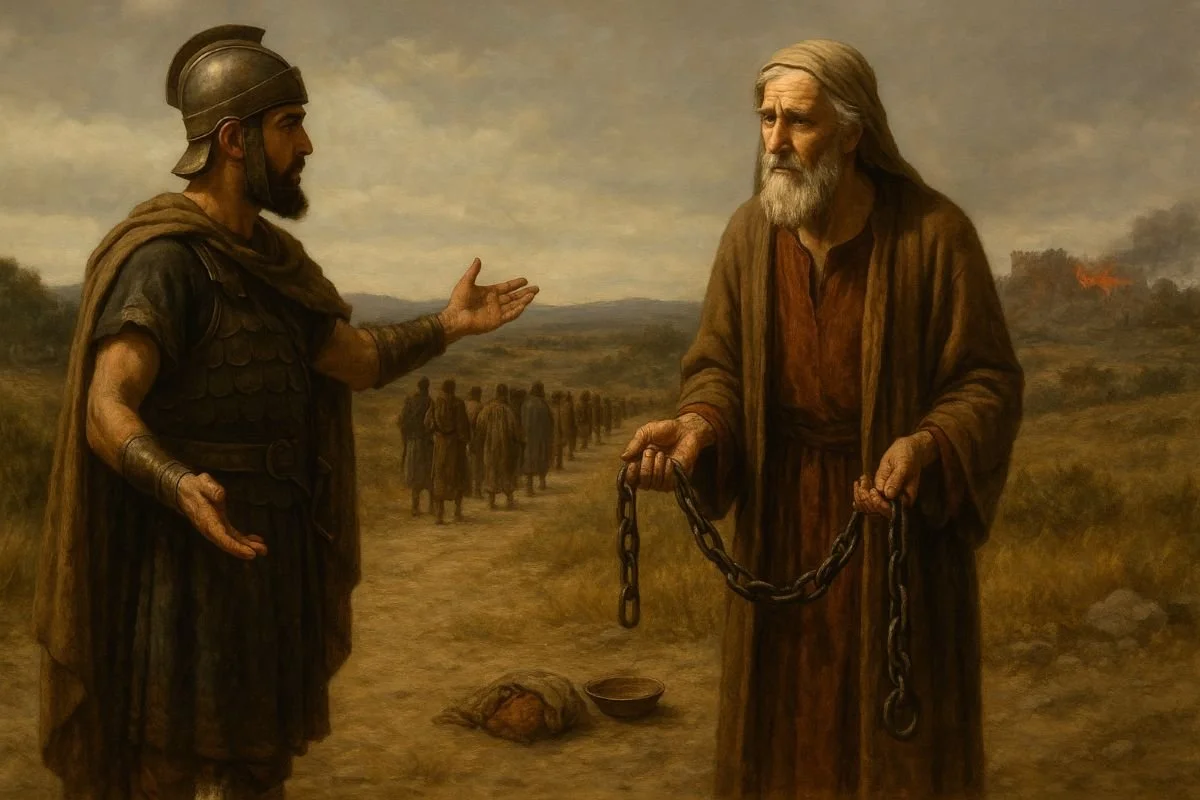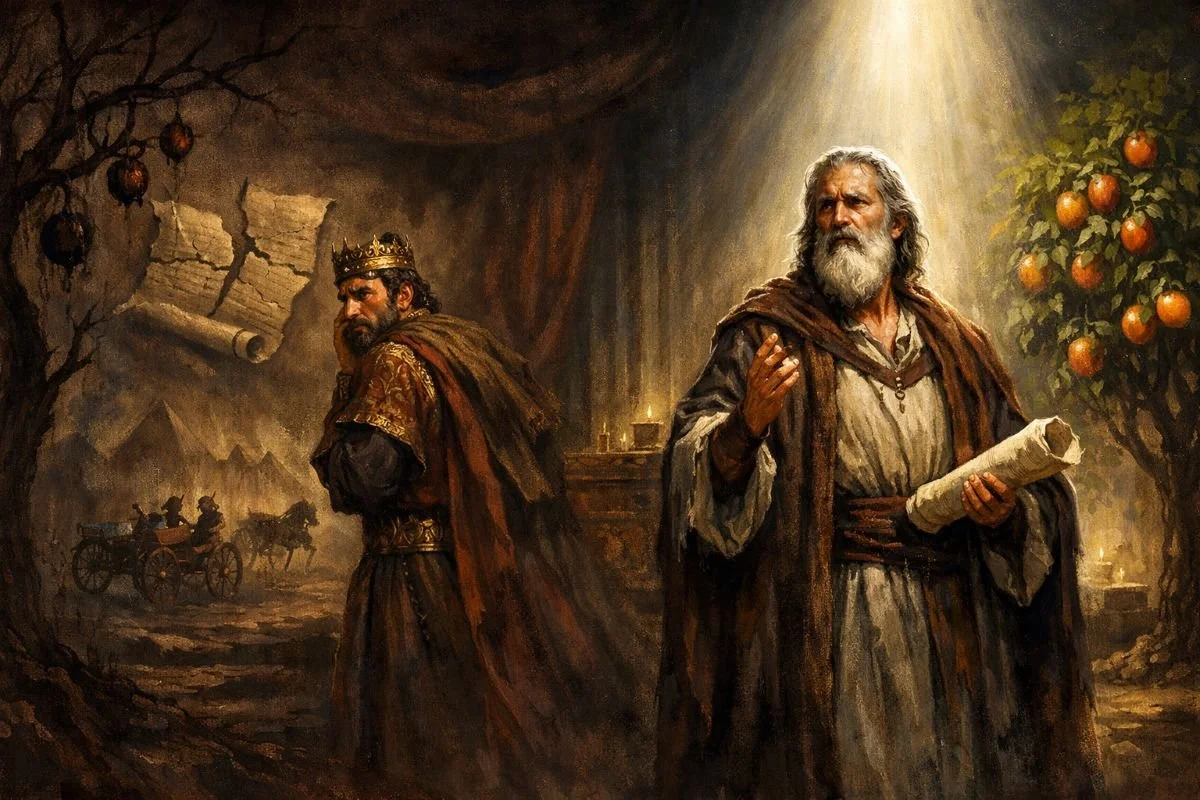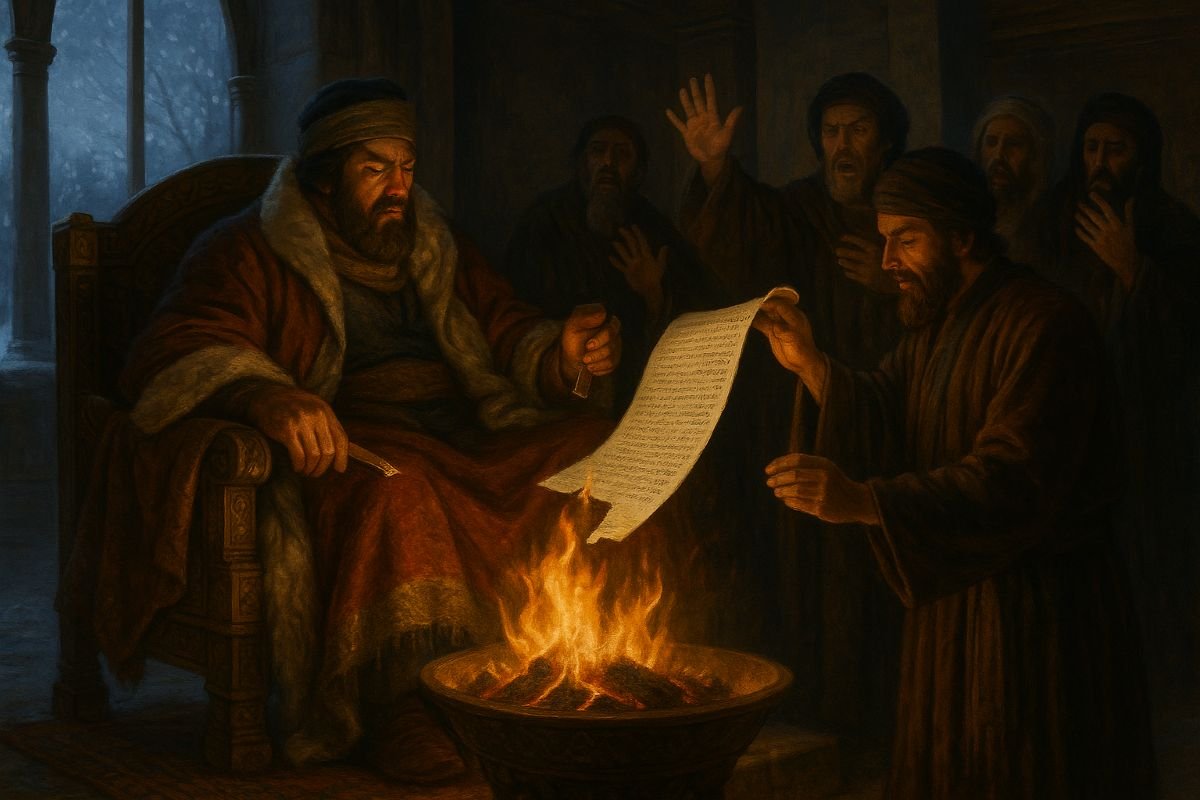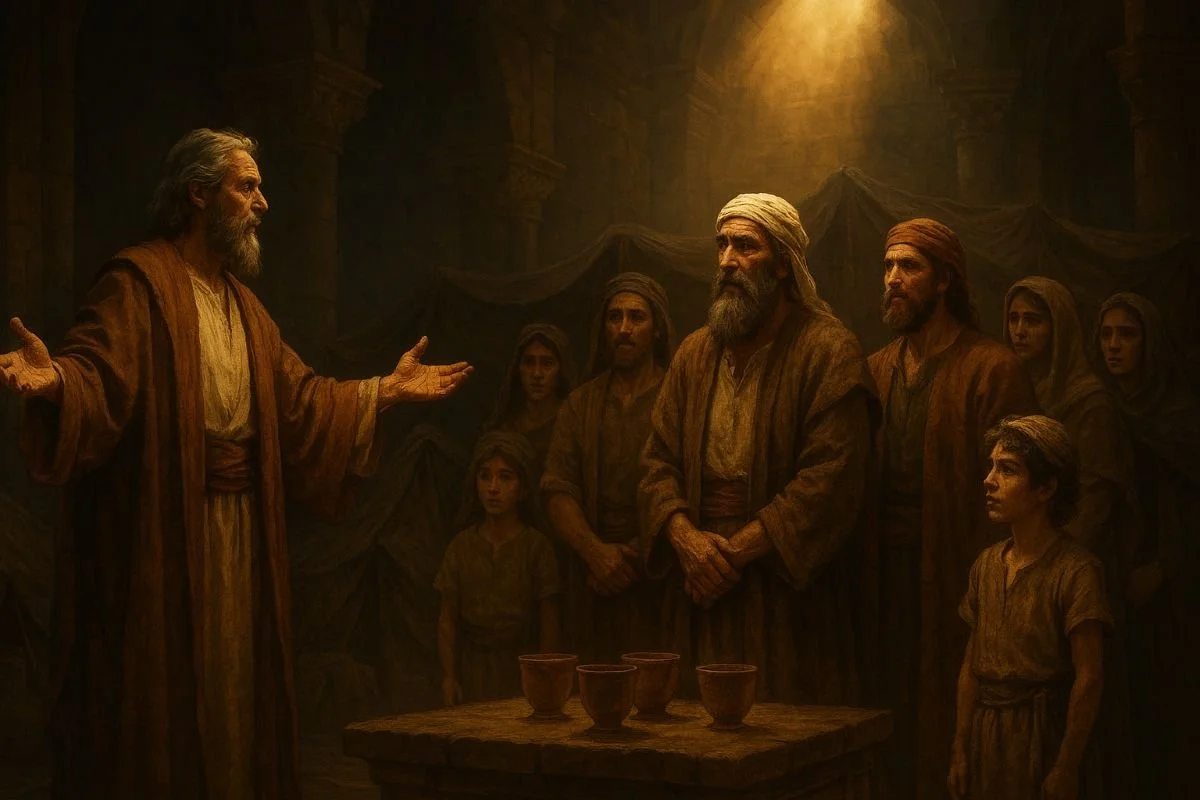1The word that came to Jeremiah from the Lord after Nebuzaradan the captain of the guard had let him go from Ramah, when he took him bound in chains along with all the captives of Jerusalem and Judah who were being exiled to Babylon. 2The captain of the guard took Jeremiah and said to him, “The Lord your God pronounced this disaster against this place. 3The Lord has brought it about, and has done as he said. Because you sinned against the Lord and did not obey his voice, this thing has come upon you.
4Now, behold, I release you today from the chains on your hands. If it seems good to you to come with me to Babylon, come, and I will look after you well, but if it seems wrong to you to come with me to Babylon, do not come. See, the whole land is before you; go wherever you think it good and right to go. 5If you remain, then return to Gedaliah the son of Ahikam, son of Shaphan, whom the king of Babylon appointed governor of the cities of Judah, and dwell with him among the people. Or go wherever you think it right to go.”
So the captain of the guard gave him an allowance of food and a present, and let him go. 6Then Jeremiah went to Gedaliah the son of Ahikam, at Mizpah, and lived with him among the people who were left in the land.
Jeremiah 40:1-6
It is very often the case that people can fill themselves with religion and yet be altogether hardened in their hearts towards the true Word of God. We often come upon those who are religious and who strongly opposed what God has written when it is declared to them.
Yet, on the other hand, we have often met poor sinners with no claim to religion at all, who will gladly accept what God has said.
Thus it was in this passage. The people who claimed to be religious were carried away in unbelief into Babylon, and yet we have a heathen man – Nebuzaradan, captain of the guard – who has known nothing of the blessings of being brought up with the Word of God, but who believes the word which the Lord spoke through his prophet.
Look at vv.1-3 again: ‘The Lord your God pronounced this disaster against this place. The Lord has brought it about, and has done as he said.’
“This man quotes what God has said and believes it to be true. The lesson is obvious. Religion, or a religious upbringing, will not save you, but without such a background you can still come to God. ”
If you have been brought up in a Christian home you are greatly blessed, but God has also plucked many of his people from the ungodliest of backgrounds.
In the rest of this story we are about to see that yet more evil will come on the land because of sin.
Editor’s note: The above is taken from the ‘Daily Readings,’ printed weekly for the Dumbarton Free Sunday School by Tommy MacKay, elder. Each entry is edited lightly for the blog post.
Excerpt from Reading Notes Week 102, Monday. Copyright Tommy MacKay, used by permission.












